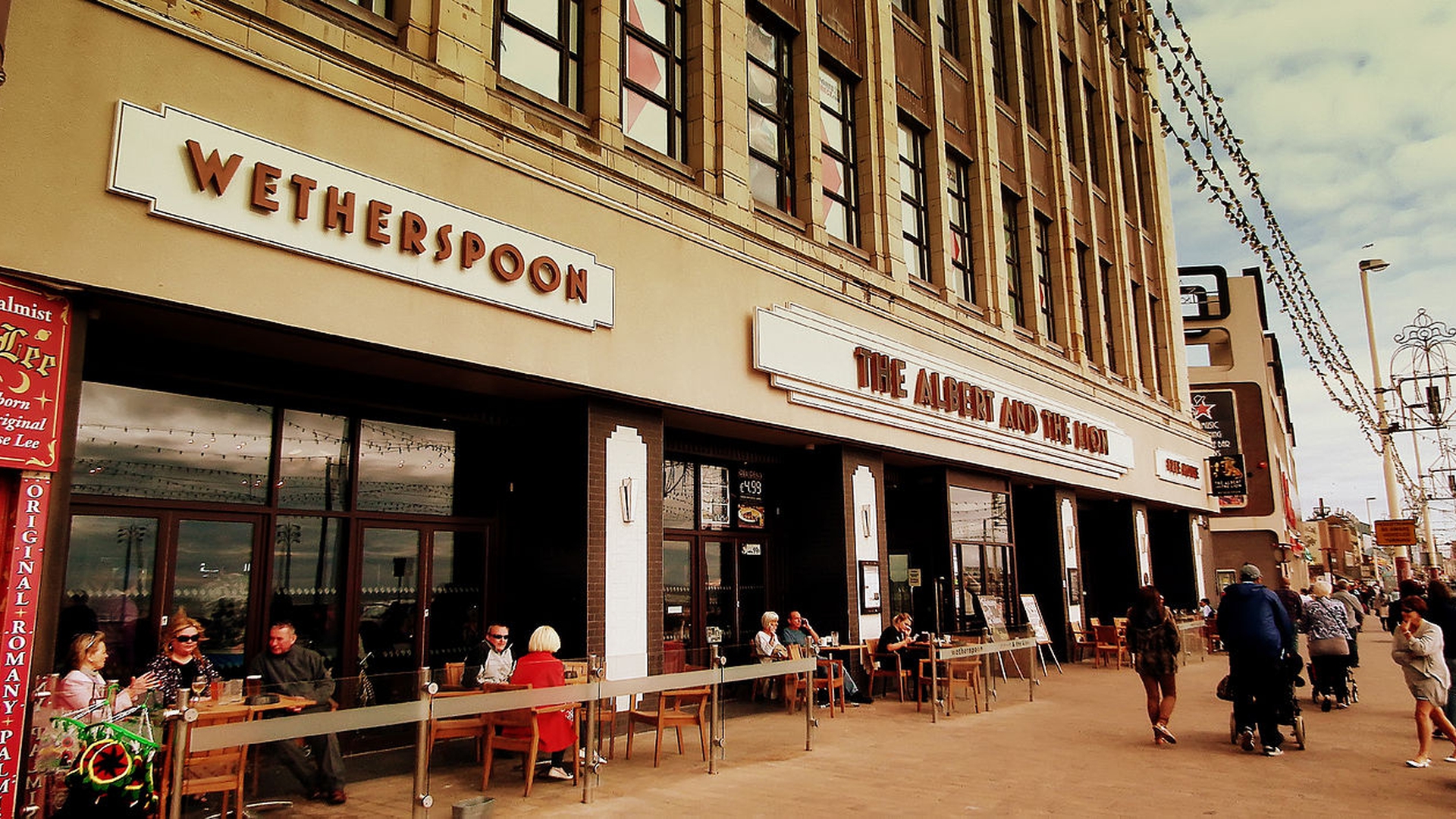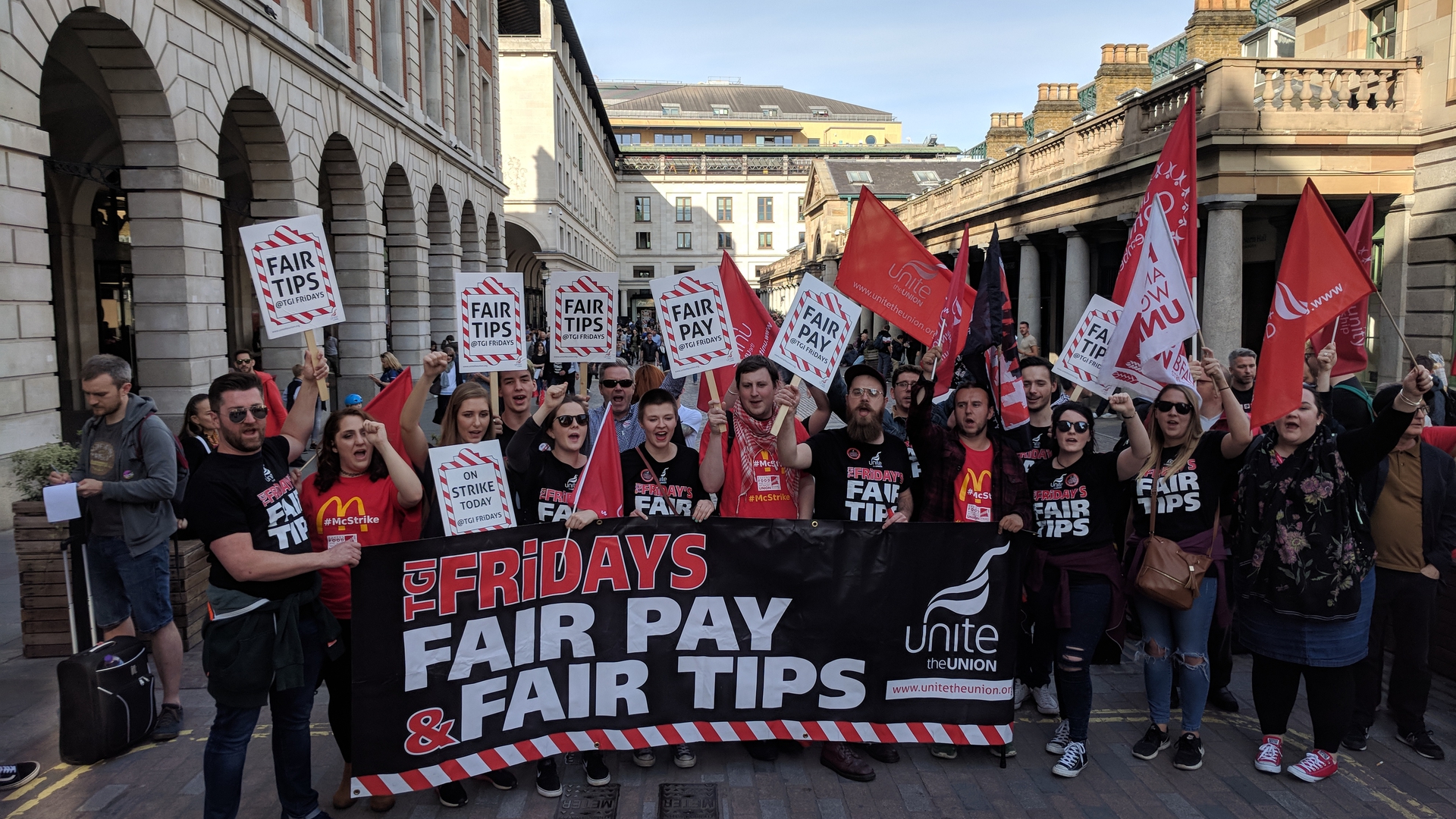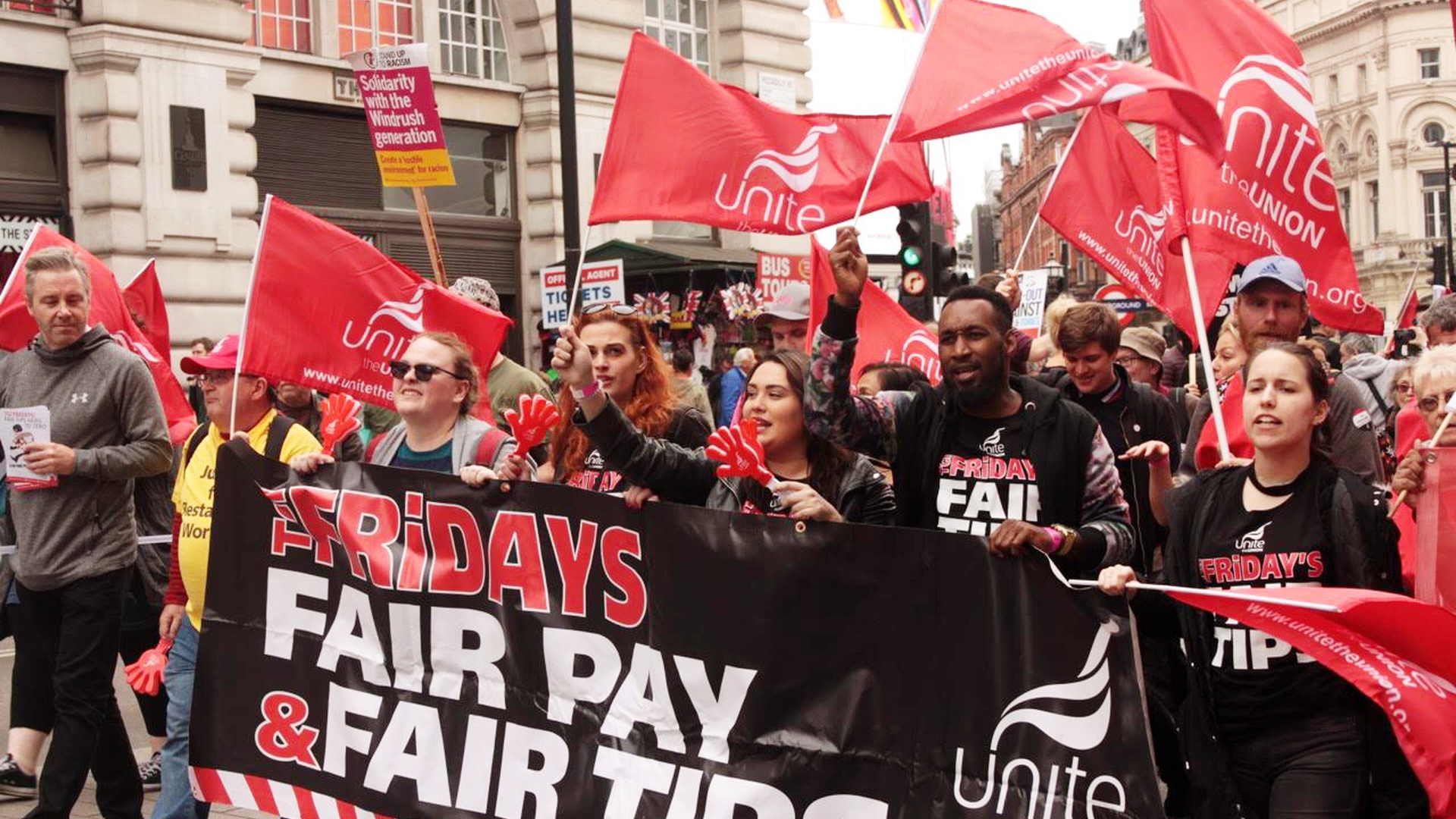‘It’s time to stop running away’: Wetherspoons workers ballot for strike action

inquiry
‘It’s time to stop running away’: Wetherspoons workers ballot for strike action
by
Callum Cant
/
Aug. 30, 2018
Downing tools, not pints
Workers at two Wetherspoons pubs in Brighton organised with the Bakers Food and Allied Workers Union (BFAWU) will begin balloting for strike action. A conclusive ‘yes’ vote seems to be the likely outcome.
Their demands are £10 an hour and union recognition. These workers are part of the fast food workers campaign within the BFAWU, which also includes McDonalds workers. If the ballot is successful, the strike will be the first ever by Wetherspoons workers.
Wetherspoons workers are about to ballot for strike action for the first time in British history. We are those workers. The first hour of my first day working for this company was a staff meeting. The kitchen manager told us ‘every single one of you is dispensable’. We struggle to make ends meet on low pay. We’ve seen the people we work with sofa surfing and living out of hostels. Our wages don’t go up with the cost of living. There comes a time when you ask yourself: ‘do I leave and look for another job that will be just as demeaning, in the hope that it could be better, or do I say enough is enough, and make this job better instead?’ Our answer is that it’s time to stop running away, to stand together and fight for more, to fight for what we deserve. Wetherspoons workers across the country will see what we’re doing here. We want to give every single worker the opportunity to join us and fight for £10 an hour and a union.
These mostly young workers are part of a disorganised demographic within a disorganised sector. As of 2017, only 8.4% percent of 18-24 year olds were members of a trade union. Total private sector trade union membership hovered at 13.4%. But a #SpoonsStrike would be one of the increasing number of high-profile strikes in the hospitality sector which are breaking new ground, organising new workplaces, and showing whole workers’ movement the way forwards.
The Spoons Model
The number of Wetherspoons pubs increased by 1200% in the decade between 1992 and 2002. This rapid expansion resulted from the coincidence of the forced vertical disintegration of the brewing and pub industries via state regulation and the rise of high street binge drinking culture.
The viability of Wetherspoons within a crowded industry has been based on the company’s capacity to keep wages at rock bottom through a human resource management structure predicated on high turnover and a regimented internal labour market. In this context, the workers’ decision that ‘it’s time to stop running away’ has very clear implications. Individual strategies of resistance, like endlessly moving from job to job, can make things a bit better in the short term, but don’t change the balance of power in the workplace. For that kind of change, workers’ have to organise together.
Trends towards deskilling and work intensification in the workplace have been pronounced – particularly in the kitchen, which is organised along an assembly line model, totally removing the need for skilled food prep workers. Recent developments in the workplace include an app which allows for ‘iorders’ to be placed, thereby potentially reducing the number of bar workers needed at any one time.
Spreading the Strike
For workers to generate the leverage necessary to beat Wetherspoons, the strikes will need to spread across the chain. Workers are discussing producing a Wetherspoons worker bulletin, which has been an effective way to spread and reinforce class consciousness in other struggles.
author
Callum Cant (@CallumCant1)
Subscribe to Notes from Below
Subscribe now to Notes from Below, and get our print issues sent to your front door three times a year. For every subscriber, we’re also able to print a load of free copies to hand out in workplaces, neighbourhoods, prisons and picket lines. Can you subscribe now and support us in spreading Marxist ideas in the workplace?
Read next


